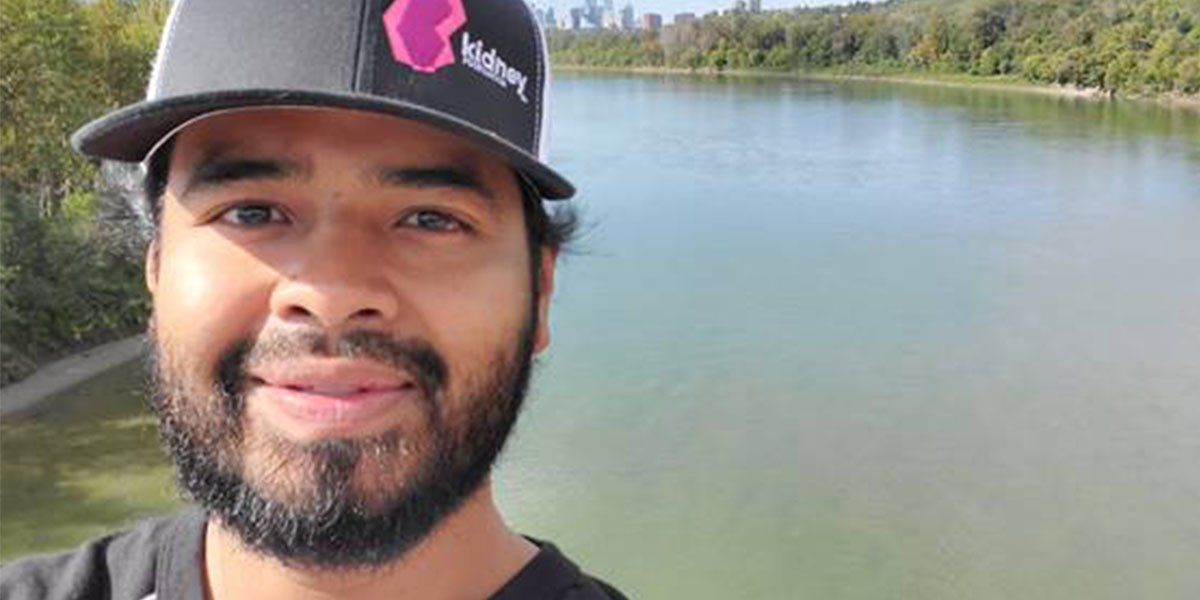On January 27, the Can-SOLVE CKD Network will host a special webinar focused on patient engagement in knowledge translation.
We are excited that two patient partners, Mary Beaucage and Manuel Escoto, will be taking part in this discussion to share their reflections on the opportunities for patients to take part in knowledge translation.
Check out the Q&A below to learn more about these amazing individuals and the range of experience they bring to this conversation.
Patient Engagement in Knowledge Translation: Reflections and Opportunities
Wednesday, January 27
9:00-10:00 a.m. PST / 12:00-1:00 p.m. EST

Mary Beaucage
I am from Nipissing First Nation near North Bay ON. I am an Anishnaabekwe woman who lives a full life with Chronic Kidney Disease after receiving a living kidney from my cousin in 2015. I have been part of the Can-SOLVE CKD family since 2016 and have gradually taken on more responsibilities and leadership roles as the network has matured. As co-chair of the Indigenous Peoples Engagement Research Council (IPERC), I advocate for different ways Indigenous knowledge and perspectives are incorporated into the Can-SOLVE CKD ethos. I am also a patient partner on four Can-SOLVE CKD research teams, a co-chair of the Patient Governance Circle (PGC), and I sit on several committees, including the Research Operations Committee and the Knowledge User/Knowledge Translation Committee.
Describe some of your experience with knowledge translation, patient engagement, and kidney research
It is only after my transplant in 2015 that I became involved with kidney research and patient engagement. I went from being blissfully unaware to a new and exciting world of patient involvement in kidney research. I found a renewed purpose and a new role. Since then, I have committed my voice and time, no matter how small, to all I can do for the advancement of kidney research and organ donation.
What do you hope to contribute as a member of the Knowledge User/Knowledge Translation Committee?
I hope to provide a different world view, fresh ideas, and a little humor!. I continue to learn and acquire skills that are valuable to the work we do to support knowledge translation. For example, how to tell more impactful stories. Or how to effectively use social media like Twitter for sharing knowledge and bringing awareness to important issues. Our 18 projects are all very different and I look forward to working with the KU/KT Committee to support the translation of results and guiding teams as they think about how they will scale, spread and implement the evidence.
As an Indigenous member of the committee, I “tread lightly” because it is important for me to listen and observe the other committee members. Having no knowledge of KT coming into this committee, they’ve been my teachers.
Why is it important for patients to play a role in knowledge translation?
I think it’s important because once we understand the processes that fall under the definition of knowledge translation. We play a key role in contributing to the body of knowledge through our experiences (we have great ideas too!). When the patient experience and voice come into research, everything looks and feels different. It’s more authentic. We also have a duty to make sure that the right evidence get translated and put into action so that it may benefit the lives of patients and their families who live with kidney disease. It will take time to change practice or policy but we are all in this together. By involving the producers and the users of that knowledge, we will all eventually reap the benefits.

Manuel Escoto
I am a patient-partner with the Can-SOLVE CKD Network. I am a 13-year transplant recipient, and I currently work for The Kidney Foundation (Northern Alberta & The Territories Branch) as their Community Development and Communications Manager. In 2020, I graduated with a Master of Public Health (policy & management) degree from the University of Alberta.
I was born, raised, and live on Treaty 6 territory (Edmonton, Alberta). During pre-COVID times, you would find my partner and I checking out Edmonton’s newest local restaurants and breweries, walking along the river valley with our two dogs, and spending time with our family. During our summers, we would typically be exploring a new nook somewhere in Europe.
Describe some of your experience with knowledge translation, patient engagement, and kidney research
I was drawn to Can-SOLVE CKD and the Knowledge User/Knowledge Translation Committee because I recognize it was time to use my voice. Like many others, I’ve questioned the value and legitimacy of my experience. How could my experience represent the diverse and unique people and experience of this community? For too long, I thought it had little value. My work with the Patient and Community Engagement Research (PaCER) program empowered me to find my voice, realize the value in my experience, and grow my skill set to create and maintain safe and inclusive spaces for other patients to do the same.
What do you hope to contribute as a member of the Knowledge User/Knowledge Translation Committee?
As a transplant recipient/former dialysis patient, health research enthusiast, and public health policy nerd, I want to use my voice, lived experience, and professional experience to help support the advancement of kidney health outcomes via the Knowledge User/Knowledge Translation committee.
Why is it important for patients to play a role in knowledge translation?
Kidney health research must be rooted in addressing patient concerns and improving health outcomes. Therefore, patients must be at the core of health research and knowledge translation, so research remains accessible, relevant, and patient health literacy grows. Through my work with The Kidney Foundation, I’ve connected with countless patients and caregivers in Alberta’s kidney and transplant community. I’ve heard their stories and their concerns. I am committed to bringing my experience and their experience to ensure Can-SOLVE CKD’s work reflects patient concerns and remains accessible.

Connect with us